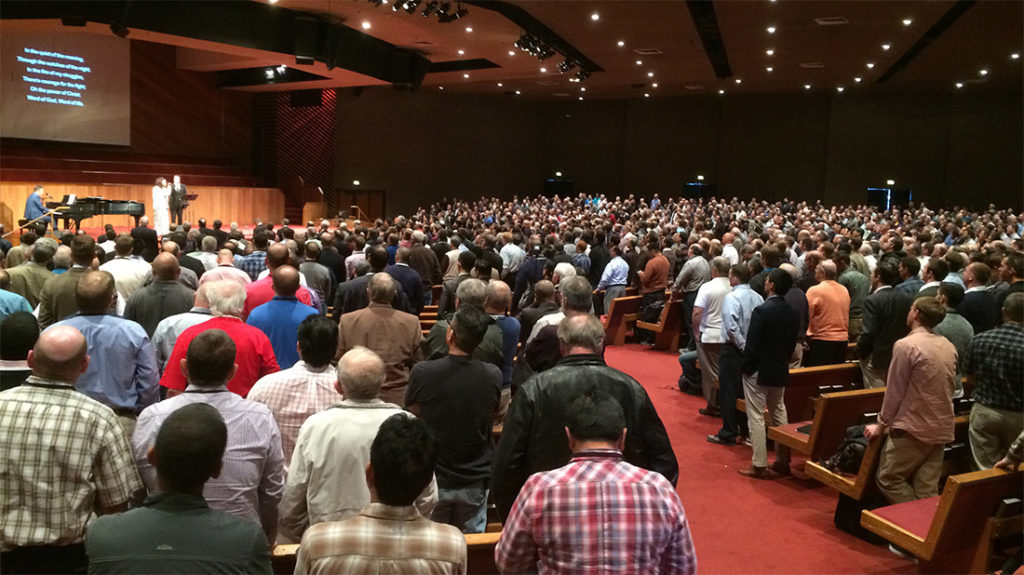Many preachers have proclaimed from the pulpit, “The Bible is inerrant, infallible, and inspired.” Not only is it a powerful statement, but we love the alliteration. But how much relevance does inerrancy have in our daily Christian walk?
In its most basic form, inerrancy means without error. While this is a good starting point, a more complete definition can be found in the Chicago Statement on Biblical Inerrancy. Formulated in 1978, it offers one of the leading definitions of inerrancy produced. Almost three hundred leading theologians (including James Boice, R. C. Sproul, J. I. Packer) produced nineteen articles and an exposition on the concept of inerrancy. Article XII gives the most concise definition of inerrancy stating, “Scripture in its entirety is inerrant, being free from all falsehood, fraud, and deceit” (http://library.dts.edu/Pages/TL/Special/ICBI_1.pdf). This definition not only points to the correctness of the words in Scripture, but also to the intent of Scripture. Scripture will not mislead us in the truths about God.
But Does it Matter?
The statement continues in article XVI, “The doctrine of inerrancy has been integral to the Church’s faith throughout its history.” Of course inerrancy provides the foundation on which we hang the tenants of the faith. Beyond that, does it have any practical application for church members today? I would like to share three areas of our daily Christian walk which inerrancy directly impacts.
Area 1 – Standards
We are a homeschooling family of 6 children. One of their math lessons involves using a yardstick to measure the length of the kitchen. At the end of the assignment, all the kids have the same answer. But what if each child devised his own measurement system and then measured the kitchen? Each one would have an answer that had no meaning for anyone else.
Apply this example to morals and ethics. Moral relativism means that each person can create his own yardstick. With potentially seven billion different moral yardsticks available, how can we hope to discern right from wrong?
The answer is God’s Word. In Amos 7:7-9, God shows Amos a plumb line, a simple device designed to measure the straightness of a wall. If a wall is straight, it will align itself with the plumb line. God’s Law is the moral measuring device for the world. The Bible reveals God’s immutable standards of right and wrong. If what feels good to you is out of plumb with God’s Word, then you are the one who is wrong. Regardless of others’ opinions or governmental legalization, you are wrong, and God is right. Thoughts will change, trends will change, political opinion will change; but God’s standards as revealed in His inerrant Word will never change.
Area 2 – Boldness
The world is full of religions, philosophies, and worldviews all proclaiming salvation of some sort. How can Christians continue to proclaim what has become an inconvenient truth to much of the world?
We are bold because we are proclaiming God’s inerrant truth. Acts 4 records the disciples under attack by the Sanhedrin who commanded them “not to speak or teach in this name” (Acts 4:18). The disciples responded, “Whether it is right in the sight of God to listen to you instead of God, you must judge” (Acts 4:19). The disciples fought the prevailing beliefs of the day because they knew the truth that Christ had revealed to them. They could not be silent but had to speak. The message they spoke was the saving power of Jesus Christ.
John 14:6 tells us the only way to be saved is through Jesus Christ. We boldly proclaim this message because it is the truth of God’s Word. Salvation cannot be found anywhere else. Even though the landscape of society is shifting toward telling Christians not to proclaim this truth, we too must fight against the prevailing beliefs of our day. In the face of fear, intimidation, intolerance, and hostile public opinion, we continue to be a bold witness to the inerrant Gospel of salvation found only through Jesus Christ.
Area 3 – Hope
Recently the world witnessed the atrocity of twenty-one Coptic Christians being martyred for their faith. While I cannot bring myself to watch the video, I have seen the still shots of them while being marched to their deaths. As I studied the pictures, I stared at their faces. Their faces do not reveal worry, fear, or any other emotion one would associate with an imminent, violent death. How is that possible?
Christians have a hope which the world does not. Romans 8:18-25 talks about the journey from suffering to glory. In verse 24, we are told “we were saved in this hope.” For Christians, death is a door we pass through to receive the reward of being in Heaven with our Savior. As our brothers were kneeling on that beach shore, they knew they were about to walk through the door of death, but they could walk through confidently because on the other side they would see the fulfillment of the Biblical promises God has made to all who believe. Inerrancy makes that hope sure.
Inerrancy Matters
While we don’t usually associate the above ideas with inerrancy, each one is inextricably connected to this tenet. Therefore, we find that inerrancy is not an “ivory tower” theological debate. It is a vital pillar of the Christian faith because it tethers us to the authority of Scripture. Moreover, in daily life, it shows us the standards we are to follow, gives us the boldness we need to proclaim the Gospel, and fills us with hope. Inerrancy is still important.




